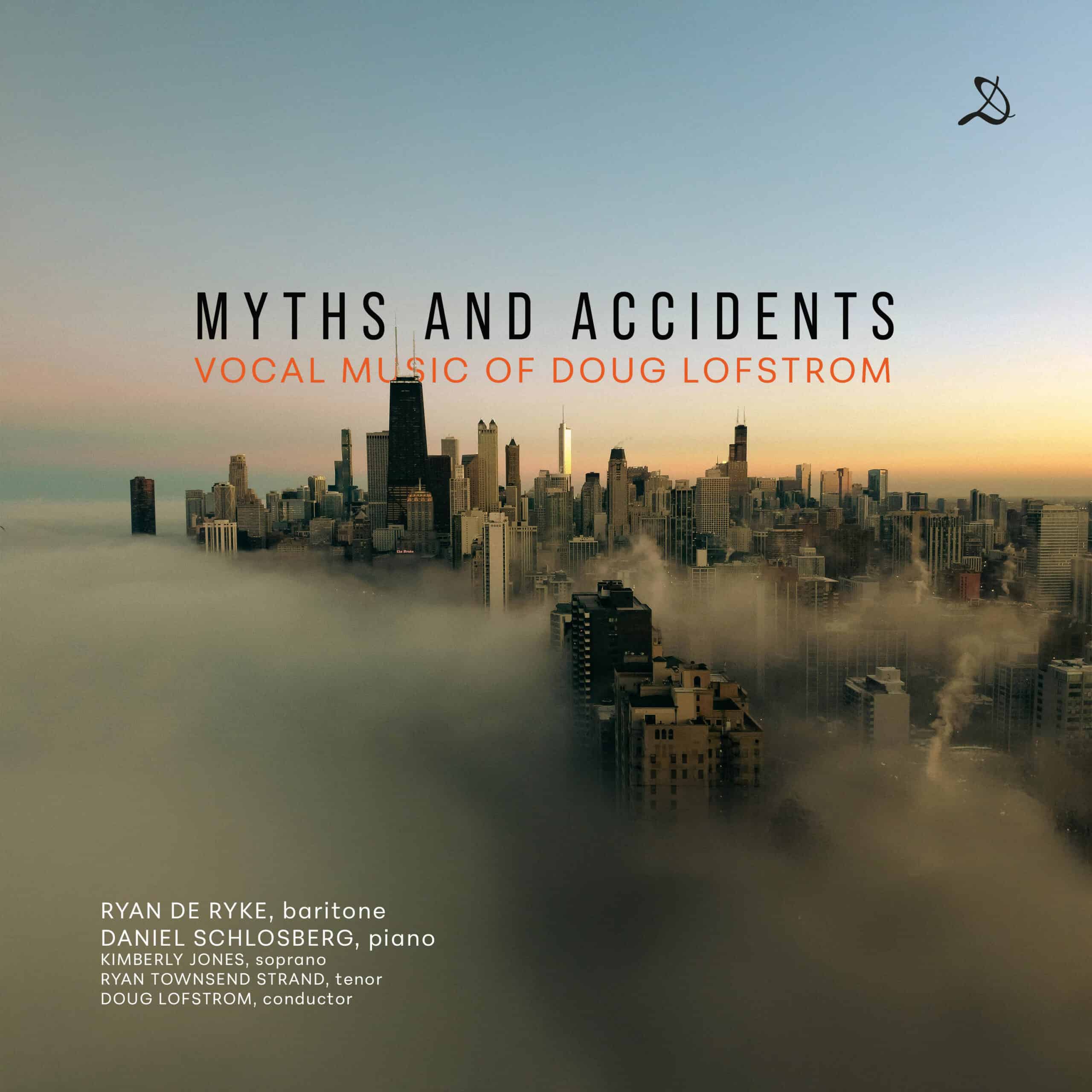Classical Music Daily
American composer, double bass player and conductor Douglas Jerry Lofstrom (born Chicago, 4 March 1949) studied at De Paul University and the University of Illinois and is based in Downers Grove in the Chicago area. He’s had an active life as a performer in the fields of dance, folk, jazz, theatre and classical music. He has been composer-in-residence at the Metropolis Symphony Orchestra, musical director of Chicago’s Free Street Theatre and bassist with the New Quartet, which he founded, and currently performs with the folk group Trillium. He teaches composition and performance at Columbia College Chicago, where he founded and conducts the New Music Ensemble.
Doug Lofstrom’s music has also been performed by the Atlanta, New Philharmonic, Oregon and St Louis Symphony Orchestras, the Russian String Orchestra and the Present Music and CUBE chamber ensembles.
This new CD features Lofstrom’s vocal music, beginning with three attractive scenes from his opera Two Soldiers (1989) for vocal soloists baritone Ryan De Ryke, tenor Ryan Townsend Strand and soprano Kimberly Jones with a small session orchestra.
Lofstrom’s vocal music in these operatic excerpts is in what you might call the American ‘Musical’ style – twentieth century, tonal and romantic. In Dark Clouds Above, a Russian soldier says farewell to his sweetheart before going off to war.
In the first of Duo Soliloquy‘s three sections, the same Russian soldier is on sentry duty. In the second, a German soldier is on a troup train to the war front, imagining his future and an enemy (Russian) soldier as his brother. The third scene returns to the Russian soldier on sentry duty, now questioning what the future brings, with the imminent arrival of the Germans.
In Dream Sequence, the last excerpt from the opera, the Russian soldier and his sweetheart are celebrating their reunion and the return of peace, but then the spectre of the German soldier appears, and the two soldiers make their peace.
Almost all of the performers here only appear in these operatic excerpts. The rest of the album is a recital by the very capable and expressive American-born baritone Ryan De Ryke, accompanied ably by Daniel Schlosberg at the piano. Occasionally, spoken word, extended piano techniques and a few recorded sound effects are added. Another kind of sound effect on this recording makes me think that De Ryke, Schlosberg or an uncredited page-turner hasn’t yet learnt to turn pages quietly!
In the extended Myths and Accidents song cycle, Prologue is a rather over-dramatic description of an ordinary day – what Lofstrom in his liner notes calls ‘a scathing indictment of modern life’. Then comes the epic eight-minute Ballad of the Harp-Weaver with its surprise ending, setting American poet Edna St Vincent Millay (1892-1950).
Finally, Looking to Euridice is the Orpheus myth re-told in modern American street language.
There’s a typographical error in the word Euridice in the booklet’s track list, which almost makes me think that this song could be the name of a European Broadcasting Union TV programme about gambling: Looking to Eurodice! Maybe this is one of the accidents in the cycle’s title? I noticed too, while listening to this album, occasional discrepancies between the words sung and printed in the very welcome complete text listings in the booklet. (Almost all the texts have been adapted by the composer.)
Prologue, Euridice and the opera, Two Soldiers, all set words by Lofstrom’s mysterious long-term collaborator, lyric writer Al Day (Alan Robert Day). There’s no biographical information in the CD booklet about the capable Mr Day and neither can I find any informtion online about him.
The All Must End cycle begins with Birth, setting the composer’s own words about the beginning of life, then Eden sets words by the seventeenth century British poet/priest Thomas Traherne (1636-1674), describing the beauty and simplicity of youthful life on Earth.
The Wind and the Rain, with traditional Mayan text, describes, in its less than two minutes, how all life ends in the peace of oblivion. Finally Pontoocuse, setting American Renaissance writer Herman Melville (1819-1891), begins with a similar theme, opening with the words ‘All dies!’, but gradually the song becomes more optimistic, concentrating on the cyclic nature of life and ending with the words ‘beginning again!’
The passing of time, the impermanence but passing beauty of life, and life’s end seem to be the common themes running through all the songs on this album. The last work, Three Sandburg Songs, setting words by American writer Carl Sandburg (1878-1967) published in 1916 as Chicago Poems, begins with Killers, about World War I soldiers, which experiments with spoken word and extended piano techniques.
The rumbustious middle song in this cycle, Bones, which repeatedly uses the words ‘Sling me under the sea’, could be competition for well known sea ballads such as John Ireland’s Sea Fever or Stanford’s Drake’s Drum.
Ending this intriguing album, Rim of a Hat describes, at length, a fleeting glimpse, in passing, presumably in a busy city, of the eyes of another soul.
@divineartrecordingsgroup
A First Inversion Company
Registered Office:
176-178 Pontefract Road, Cudworth, Barnsley S72 8BE
+44 1226 596703
Fort Worth, TX 76110
+1.682.233.4978












